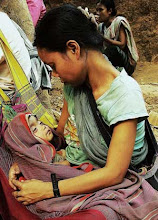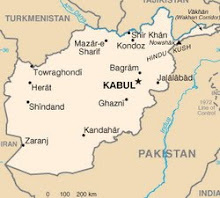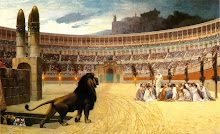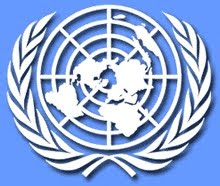 LOS ANGELES-(Compass Direct News)A prominent foreign pastor in Saudi Arabia has fled Riyadh after a member of the mutawwa’in, or religious police, and others threatened him three times in one week.Two of the incidents included threats to kill house church pastor Yemane Gebriel of Eritrea. On Wednesday (Jan. 28), Gebriel escaped to an undisclosed city in Saudi Arabia. A father of eight who has lived and worked as a private driver in Saudi Arabia for 25 years, Gebriel told Compass that on Jan. 10 he found an unsigned note on his vehicle threatening to kill him if he did not leave the country. On Jan. 13, he said, mutawwa’in member Abdul Aziz and others forced him from his van and told him to leave the country.“There was a note on my van saying, ‘If you do not leave the country, we will kill you,” Gebriel told Compass by telephone.“Three days after that,Aziz said, ‘You’re still working here, why don’t you go out of the country?” Aziz, another member of the mutawwa’in and a policeman had waited for Gebriel shortly after 9 p.m. A sheikh at a Riyadh mosque, Aziz raged at Gebriel for about five minutes, accusing him of being a Christian and trying to change the religion of others, said a Christian source in Saudi Arabia. “He finished by telling Yemane to get out of the country or ‘measures’ would be taken,” said the source, who requested anonymity for security reasons. He said Gebriel was in genuine danger of losing his life. “In meeting with me on the morning of Thursday, Jan. 15, Yemane himself was clearly very frightened,” said the source. That night (Jan. 15), Gebriel told Compass, four masked men – apparently Saudis – in a small car cut off the van he was driving. “They said, ‘We will kill you if you don’t go away from this place – you must leave here or we will kill you,’” he said. Gebriel subsequently took temporary refuge in a safe house in Riyadh, and after consulting with consular officials from four embassies on Tuesday (Jan. 27), the pastor was whisked away to another city the following day.In 2005, the religious police’s Aziz had directed that Gebriel be arrested along with 16 other foreign Christian leaders, though diplomatic pressure resulted in their release within weeks. “No doubt Sheikh Abdul Aziz is still burning,” said the local Christian source. “Nor may such type of death threat be possibly idle words. The current situation and circumstance remind me very much of the machine-gun murder of Irish Roman Catholic layman Tony Higgins right here in Riyadh in August 2004.”
LOS ANGELES-(Compass Direct News)A prominent foreign pastor in Saudi Arabia has fled Riyadh after a member of the mutawwa’in, or religious police, and others threatened him three times in one week.Two of the incidents included threats to kill house church pastor Yemane Gebriel of Eritrea. On Wednesday (Jan. 28), Gebriel escaped to an undisclosed city in Saudi Arabia. A father of eight who has lived and worked as a private driver in Saudi Arabia for 25 years, Gebriel told Compass that on Jan. 10 he found an unsigned note on his vehicle threatening to kill him if he did not leave the country. On Jan. 13, he said, mutawwa’in member Abdul Aziz and others forced him from his van and told him to leave the country.“There was a note on my van saying, ‘If you do not leave the country, we will kill you,” Gebriel told Compass by telephone.“Three days after that,Aziz said, ‘You’re still working here, why don’t you go out of the country?” Aziz, another member of the mutawwa’in and a policeman had waited for Gebriel shortly after 9 p.m. A sheikh at a Riyadh mosque, Aziz raged at Gebriel for about five minutes, accusing him of being a Christian and trying to change the religion of others, said a Christian source in Saudi Arabia. “He finished by telling Yemane to get out of the country or ‘measures’ would be taken,” said the source, who requested anonymity for security reasons. He said Gebriel was in genuine danger of losing his life. “In meeting with me on the morning of Thursday, Jan. 15, Yemane himself was clearly very frightened,” said the source. That night (Jan. 15), Gebriel told Compass, four masked men – apparently Saudis – in a small car cut off the van he was driving. “They said, ‘We will kill you if you don’t go away from this place – you must leave here or we will kill you,’” he said. Gebriel subsequently took temporary refuge in a safe house in Riyadh, and after consulting with consular officials from four embassies on Tuesday (Jan. 27), the pastor was whisked away to another city the following day.In 2005, the religious police’s Aziz had directed that Gebriel be arrested along with 16 other foreign Christian leaders, though diplomatic pressure resulted in their release within weeks. “No doubt Sheikh Abdul Aziz is still burning,” said the local Christian source. “Nor may such type of death threat be possibly idle words. The current situation and circumstance remind me very much of the machine-gun murder of Irish Roman Catholic layman Tony Higgins right here in Riyadh in August 2004.”Raids Feared
Gebriel, 42, led a church of more than 300 foreign-born Christians, though because of work obligations only a little over 150 are able to meet regularly in his villa for Friday worship. He fled without his family, as his wife and children had managed to relocate in Egypt in August 2007. Gebriel and three others started the house church in Riyadh 10 years ago, the local source said, and only a few months ago the pastor handed leadership over to others in the church. “But right now the entire church is very frightened,” the source said. “They are expecting a raid one Friday shortly – just like in 2005. The congregation doesn’t even know yet that we have whisked Yemane away from them as well as from the religious police.”In April and May of 2005, the mutawwa’in arrested 17 pastors – two Pakistanis, two Eritreans (including Gebriel), three Ethiopians and 10 Indians. None were deported after their release.“Are there signs that 2009 might prove to be such a year again? I think so,” the source said. “Every three or four years, there is a clamp-down in Riyadh. It seems that we should expect 2009 to be a year of repression. However, the underground church here is far better placed than heretofore to manage any such persecution.”The Saudi regime has reportedly begun to restrain the mutawwa’in, which historically has acted as a virtual vigilante force enforcing the kingdom’s Sunni Islamic social codes as volunteer agents of the semi-autonomous Commission to Promote Virtue and Prevent Vice. The U.S. Department of State’s 2008 International Religious Freedom Report noted that abuses by mutawwa’in have continued. “Mutawwa’in (religious police) continued to conduct raids of private non-Muslim religious gatherings,” the report states. “There were also charges of harassment, abuse, and killings at the hands of the mutawwa’in, or religious police. These incidents caused many non-Muslims to worship in fear of, and in such a manner as to avoid discovery by, the police and mutawwa’in.In the past year, mutawwa’in sometimes have not respected the Saudi policy of allowing private worship for all, including non-Muslims, according to the report. Religious police are not allowed to mete out punishment, but in the past year the Saudi government has investigated several incidents in which the mutawwa’in were accused of violating restrictions on that and other activities, according to the state department report. The mutawwa’in still wear no uniforms, but the report notes that they are now required to wear identification badges and can act only when accompanied by police. They are authorized to monitor the practice of non-Muslim faiths, display or sale of pornography, alcohol production, distribution or consumption, and adultery, homosexuality and gambling, among other violations.While Saudi law forbids public practice of any religion besides Islam, foreigners are generally allowed to worship privately if their congregations do not grow too large. With the Quran and sayings of Muhammad (Sunna) as its constitution, Saudi Arabia enforces a form of sharia (Islamic law) derived from 18th-century Sunni scholar Muhammad ibn Abd Al-Wahhab that calls for the death penalty for “apostasy,” or conversion from Islam to another faith, although the state department’s report notes that there have been no confirmed reports of executions for apostasy in recent years.Saudi Arabia’s ruling monarchy restricts media and other forms of public expression, though recently authorities have tolerated criticism of the mutawwa’in and the Commission to Promote Virtue and Prevent Vice. “The government-controlled press frequently criticized mutawwa’in activity,” the report adds.
http://www.opendoorsusa.org/content/view/912/
As in the days of Noah...


























.bmp)
No comments:
Post a Comment